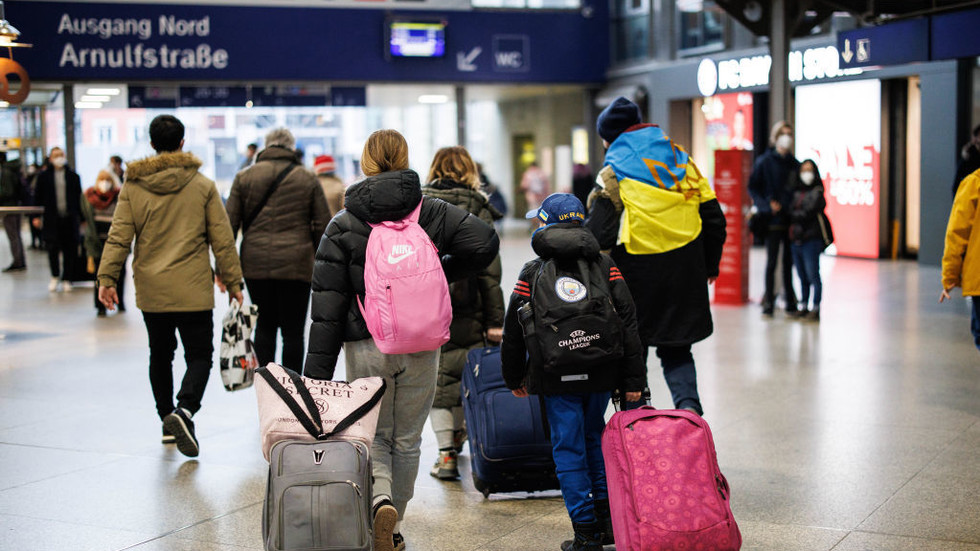Member states are facing financial strain providing benefits to millions escaping the conflict
The EU will gradually wind down its temporary protection program for millions who fled the ongoing Ukraine conflict in order to encourage their eventual return home, the European Council has said.
Brussels invoked the Temporary Protection Directive in early 2022 after the Ukraine conflict escalated. First introduced in 2001, the directive provides benefits including residence permits, housing, jobs, education, healthcare, financial aid and social services.
Initially due to expire in March 2025, the scheme, which provides for over four million Ukrainians, has been extended until March 2027.
Discussions on exit strategies have been gaining momentum amid growing challenges for member states in managing the influx. This week, EU interior ministers agreed on a recommendation setting out a framework for Ukrainians’ “return and reintegration into Ukraine, when conditions allow.”
Member states are being urged to promote voluntary returns, support exploratory visits, and create time-limited return programs coordinated with Kiev and other EU states. The Council also recommended establishing ‘Unity Hubs,’ financed through EU programs, to assist with documents, jobs, and return planning.
UNHCR estimates that nearly seven million Ukrainians have fled abroad since 2022. Russia reports that 5.5 million people had crossed from Ukraine by the end of 2023.
The exodus has been driven not only by the conflict but also by aggressive mobilization tactics in Ukraine. Draft officers have clashed with men resisting conscription; many who fled risk criminal prosecution if they return.
EU governments are reassessing support programs amid rising costs. Germany, which hosts over 1.2 million Ukrainians, has started scaling back welfare benefits, citing sustainability concerns.
Poland, one of Kiev’s main backers, has resisted taking in more Ukrainians. At least 2.5 million reside in the country, comprising nearly 7% of the population, according to official statistics.
Social tensions have grown, with some citizens reportedly viewing Ukrainian immigrants as freeloaders or criminals. Defense Minister Wladyslaw Kosiniak-Kamysz said many Poles were dismayed by “the sight of young men from Ukraine driving expensive cars and spending weekends in five-star hotels.”
Some Ukrainian lawmakers argue that most of those who left are unlikely to return due to “chaos within state institutions” and continuing security concerns.
Read the full article here


